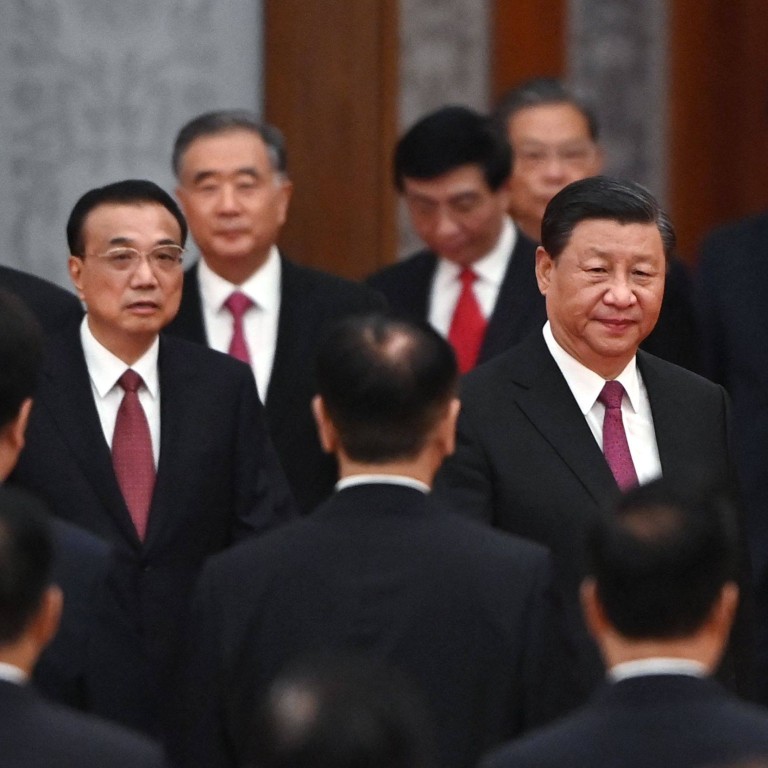
Letters | AI has spoken: who will make Xi’s top team, as revealed by machine learning
- Readers discuss which candidates for China’s new leadership have the strongest influence, and why Britain is in no place to be a protector of Asia
Many experts and scholars have attempted to predict the selection outcomes by qualitative judgment based on historical and institutional insights. Instead, I adopted machine-learning techniques to quantitatively measure the promotion prospects of incumbent Central Committee members for membership in the next Politburo.
The model was trained with over 250 features for each of the 1,185 high-ranking cadres from 2012 to 2021, including biography (such as age, gender and minority status), career (such as seniority, tenure and job diversity), context (e.g. geopolitical characteristics of work experience), faction (e.g. competing affiliations in top-level Chinese politics) and network (e.g. political connections and centrality indices). The data used was retrieved from the CCP Elites Database published by the 21st Century China Centre at the University of California San Diego.
According to the unwritten “seven up and eight down” rule that prevents cadres aged over 67 from being considered as candidates for the Politburo, there will be eight vacant positions.
Second, there are two slots for military personnel. Miao Hua (66, ranked 14th) and Zhang Shengmin (63, ranked 30th) are the two most probable military candidates.
The remaining five positions generally go to Han Chinese, male and civilian cadres. The machine-learning predictions include Hu Heping (59, ranked 1st), Lou Yangsheng (62, ranked 3rd), Wang Dongfeng (63, ranked 5th), Wang Zhimin (64, ranked 9th), and Chen Jining (59, ranked 12th).
The result of the machine-learning predictions is not surprising, given that the top predictions are well-known confidants of President Xi Jinping. It is to be expected that the model ranks candidates with connections to Xi ahead of those without, because personal relationships have been the main driver of high-ranking cadre selection during Xi’s tenure.
But one feature that distinguishes this machine-learning analysis from previous approaches is that it can derive the ranking of each candidate, thus showing who would likely have the strongest influence among Xi’s allies.
Jonghyuk Lee, assistant professor, China Programme, S. Rajaratnam School of International Studies, Nanyang Technological University, Singapore
Wishful thinking on the UK won’t help Asian security
I am not very sure whether your correspondent really understands why the UK colonised a lot of countries around the world centuries ago. Common sense tells me it would have been to plunder resources and loot colonies, but not necessarily to build them.
The UK now is not the UK centuries ago. Without the extra resources from its former colonies, the sun is now very much setting on the former empire.
It is true that there are territorial disputes in the South China Sea between China and several other countries including Malaysia. If your correspondent wishes to invite an ex-coloniser with nuclear warheads back to Asia as its protector, I think he might as well be daydreaming.
Seeking to rely on one’s former colonial master for protection is just mind-boggling. Instead, the best way forward in resolving the maritime disputes is surely negotiation.
Ringo Yee, Tuen Mun

